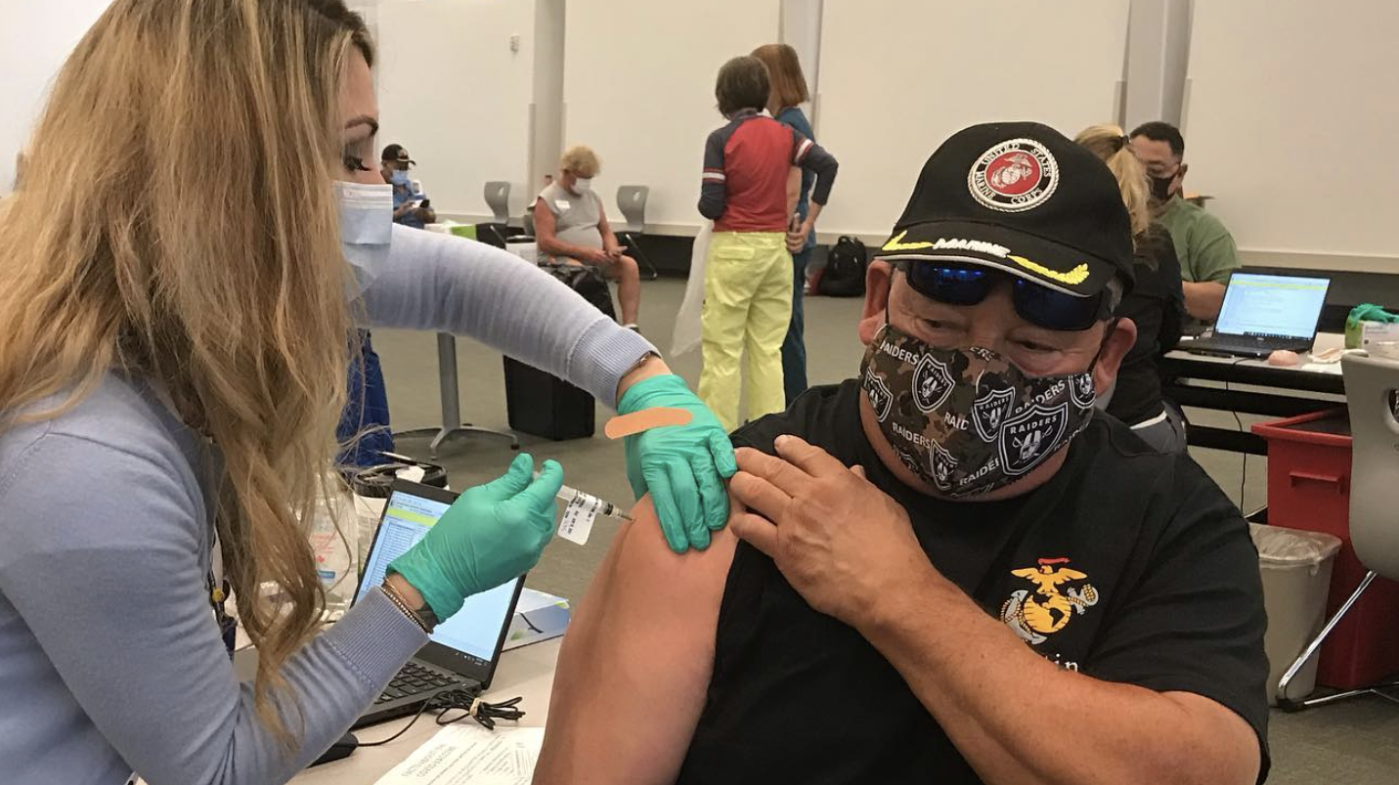VA is committed to providing high-quality health care to Veterans during the coronavirus pandemic and beyond.
COVID-19 has affected the lives of all Americans. The challenges facing rural communities during the pandemic leave residents particularly vulnerable – including nearly five million of our nation’s Veterans.
In recognition of the 10th Annual National Rural Health Day, VA’s Office of Rural Health (ORH) highlights the resources available to support the health and well-being of everyone who calls a rural community home. Learn more about VA’s efforts in the following areas.
Rural Veterans’ continuity of care
As the largest telehealth provider in the country, VA is equipped to connect Veterans to the care they need virtually. Telehealth offers a convenient alternative to in-person care that reduces Veterans’ COVID-19 exposure and travel time.
To accommodate rural Veterans’ unique health care needs, ORH funds a variety of telehealth programs, such as tele-intensive care units, teleprimary care and telemental health hubs.
Free training and resources to community providers, including those in rural areas
As part of VA’s Fourth Mission efforts to combat the transmission of COVID-19, the agency has extended health care services and resources to non-Veterans and community providers, resulting in:
- More than 8,000 contact hours of COVID-19 webinar trainings
- More than 2,000 VA staff members supporting non-VA facilities
- A COVID-19 website with tailored guidance for community providers
Prioritize mental health through a variety of resources
Mental health and suicide prevention resources help save lives. These tools are especially critical for rural Veterans who face a 20% greater risk of suicide than their urban counterparts.
To enhance VHA’s ongoing outreach to all Veterans, ORH funds an enterprise-wide initiative that focuses on suicide prevention in rural communities. In fiscal year 2020, this program expanded to 12 locations that collectively reach more than 101,000 Veterans.
Suspend debt collections for VA medical care
In recognition of COVID-19’s economic impact, VA paused medical debt collection until Dec. 31, 2020. This temporary debt relief can be particularly impactful in rural communities where over half of rural Veterans make less than $35,000 per year.
Develop innovative tools to support VHA’s workforce
The Veterans Health Administration (VHA) is committed to equipping its staff with the proper tools and resources to provide high-quality health care to our nation’s Veterans and members of the community.
In response to the pandemic, VHA developed the Rural Health COVID-19 Decision Support Tool – a dashboard which provides mission-critical insights that enable users to examine key trends and predict future challenges.
By expanding access to vital resources, training, and medical supplies, VA continues to support all providers and the Americans they care for during the pandemic – regardless of Veteran status.
Support
If you are a Veteran in crisis — or you’re concerned about one — free, confidential support is available 24/7. Call the Veterans Crisis Line at 1-800-273-8255 and Press 1, send a text message to 838255, or chat online.
For more information on COVID-19 mental health resources, visit https://www.mentalhealth.va.gov/coronavirus.
To learn more about the U.S. Department of Veterans Affairs (VA) Office of Rural Health (ORH), visit https://www.ruralhealth.va.gov.
Thomas Klobucar, Ph.D., is the executive director for VA’s Office of Rural Health.
Topics in this story
More Stories
Respiratory illness season is approaching. Vaccines can help protect from flu, RSV (Respiratory Syncytial Virus), COVID-19, and pneumococcal pneumonia. These vaccines are available free of charge to Veterans receiving care at VA.
Recently published findings from the VA Disrupted Care National Project […]
Study underscores important role COVID vaccination can have in protecting Veterans from infection and reducing long-term health consequences







